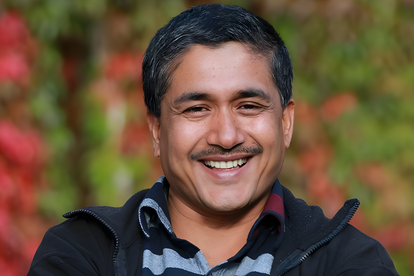Local voices took center stage as Helvetas Nepal’s UPR workshop equipped civil society actors with the tools to turn community struggles into powerful advocacy for Nepal’s human rights commitments on the global stage.
Helvetas Nepal, through its SheLeads Project and Integrated Water Resources Management (IWRM) Program, has launched a three-day workshop to strengthen civil society’s contribution to the Universal Periodic Review (UPR) — a key United Nations mechanism that evaluates the human rights performance of all UN member states, including Nepal. The workshop brings representatives from the Nepal NGO Alliance, i( Habitat for Humanity, Helvetas Nepal, SOS Children’s Villages Nepal and Nepal) together with their implementing partners and FEDWASUN, HRDC, SAC and SOSEC Nepal, to enhance their understanding of the UPR process and its application in evidence-based reporting and policy advocacy by providing inputs for Nepal’s 4th UPR cycle.
Some 20+ people are participating in this workshop being held in Nagarkot from 6-8 May 2025 The attendees, actively engaged in the field of WASH and the rights of women, girls and nonbinary people, came together with a great enthusiasm to better understand the UPR mechanism and contribute meaningfully to the stakeholders’ report within their respective areas of expertise.
In an interesting introductory session, participants were asked: “If you had all the power in the world, what is one thing you would change?” The answers revealed deep compassion and urgency for justice – calls for universal education, ending gender discrimination, global peace with sovereign Palestine, equality, protection of child rights and housing for all. Among these profound aspirations, a few light-hearted and personal wishes emerged too, from eliminating motion sickness to turning back time to relieving childhood.
What is the UPR?
The Universal Periodic Review, established by the UN Human Rights Council in 2006, is a state-driven process that reviews each country’s human rights situation every five years. It relies on three core sources of information: a national report prepared by the government, a UN compilation report, and stakeholders’ report from civil society. The UPR offers an opportunity not only for governments to account for their human rights commitments but also for civil society to present ground realities and propose reforms.
Why Now?
Nepal is currently preparing for its 4th UPR cycle. With the national report process underway and civil society submission windows approaching, this workshop is both timely and strategic. It equips local organizations with the tools and understanding necessary to meaningfully participate in the review process—and ensure that the voices of marginalized groups are reflected in national and international discussions.
Why the UPR Matters
The UPR is a vital mechanism on human rights as each review cycle builds up on the implementation of recommendations from the previous review. Thus, ensuring progress on human rights issues. For countries like Nepal—where challenges around gender-based discrimination, unequal access to services, and civic participation persist—the UPR is an opportunity to spotlight systemic issues and catalyze reform.
Amuda, Founder and Executive Director at Ujyalo Foundation
Helvetas' Role: A Trusted Partner in Rights-Based Development
Helvetas Nepal brings deep expertise in connecting human rights framework with development agenda 2030. This is anchored through the human rights based approach for programming, capacity development, and policy engagement. Through longstanding partnerships with all tier of governments, civil society, and international actors, Helvetas acts as a connector and facilitator between grassroots action and global advocacy on human rights using the UN human rights mechanisms.
SheLeads project under Helvetas Nepal, supported by the Ursula Zindel Hilti Foundation, aims to address systemic and legal challenges faced by young women and girls in Madhesh Province. It aims to support access to skill development and entrepreneurship opportunities, thereby addressing barriers to economic access and fostering transformative change. Meanwhile, the IWRM Programme, co-funded by Helvetas and charity: water, works on improving equitable access to water, sanitation, and hygiene in underserved regions of Karnali and Sudur Paschim provinces.
These programs are not only service delivery platforms—they are advocacy instruments. This week’s UPR workshop brings together representatives from implementation partners, local NGOs, and community groups to build their capacity in understanding the UPR process, applying a Human Rights-Based Approach (HRBA), and drafting effective stakeholder reports.
With facilitation by Archita Faustmann (Human Rights Advisor, Helvetas Head Office), Aagya Pokharel (Team Leader, SheLeads Project), Yogesh Pant (Governance & Knowledge Manager, IWRM Programme) and, participants engage in practical sessions linking their thematic work— offering a concrete opportunity to amplify the voices of young women and girls ensuring their experiences and rights are reflected in Nepal’s human rights agenda. While ensuring that the lived realities of young women and girls, and WASH rights are reflected in national commitments and global accountability mechanisms.
Civil Society at the Heart
Nepal’s civil society has a rich tradition of mobilizing for democratic reform, social justice, and inclusive development. By providing this space, Helvetas reinforces the capacity of grassroots actors to continue this legacy—now with greater alignment to international human rights mechanisms.
Archita Faustmann, Human Rights Advisor at Helvetas
What Comes Next?
Following this workshop, participants will work in their regions to gather evidence, engage with affected communities, and co-develop stakeholder submissions. These will feed into the formal UPR process for Nepal’s 4th review cycle. Notably, in 2026, representatives from Nepal NGO Alliance will have the opportunity to travel to Geneva and lobby permanent missions, representatives to take up the issues highlighted in the stakeholder’s report. .
This journey—from local dialogues to international diplomacy—is not only symbolic but essential. It reflects Helvetas Nepal’s mission: to create an environment where people can claim their rights, shape their future, and contribute to systemic transformation.










